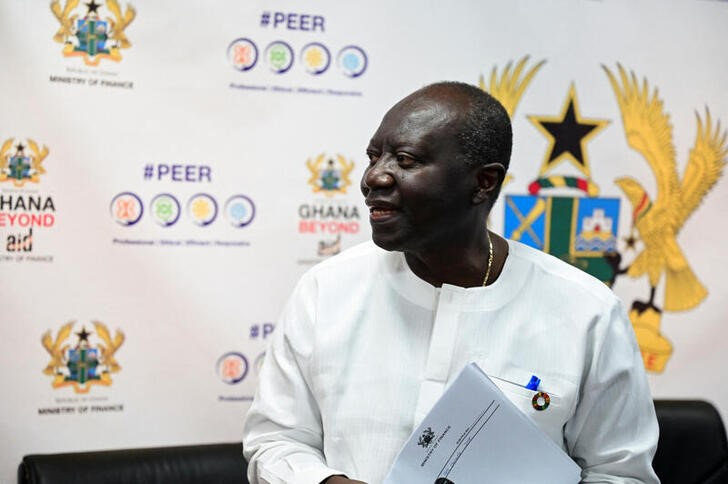(3 Minutes Read)
Ghana is yet to reach a definitive deal with international bondholders towards the restructuring of about US$ 13 billion of its external debt. The office of the Finance minister said that an interim agreement had been reached and that negotiations with bondholders were ongoing
Ghana is yet to reach a definitive deal with international bondholders towards the restructuring of about US$ 13 billion of its external debt. The office of the Finance minister said that an interim agreement had been reached and that negotiations with bondholders were ongoing.
Finance Minister Dr Mohammed Amin Adam is leading Ghana’s delegation to the IMF/World Bank Spring Meetings taking place in Washington DC. He exuded optimism that Ghana and its creditors will arrive at an agreement that is consistent with debt thresholds under the IMF debt sustainability targets. Ghana had defaulted on most of its US$ 30bn external debt.
Over 76% of Ghana’s external debt is held by commercial lenders including bondholders such as BlackRock. Multilateral development banks also hold a significant portion of Ghana’s debt, followed by the Paris Club and China. These stakeholders have to hammer a consensus on addressing the debt problem of the West African country. The problem is further compounded on account of a weak domestic currency. In January, the IMF board approved a US$600 mln payout for Ghana under the loan program. Analysts feel that such accommodations in bits and pieces may not help the heavily indebted country, which was once a blue-eyed boy of the multilateral lending agencies.
Read Also:
https://trendsnafrica.com/imf-approves-another-usd-360-mn-aid-to-ghana/
Dr Mohammed Amin Adam said that the state has put in place sufficient control and monitoring mechanisms to ensure key targets under the IMF-supported program are met. Incidentally, the year 2024 is an election year for Ghana and one can naturally expect some populist measures, which may go against the spirit of austerity and prudence dictated by its lenders.





